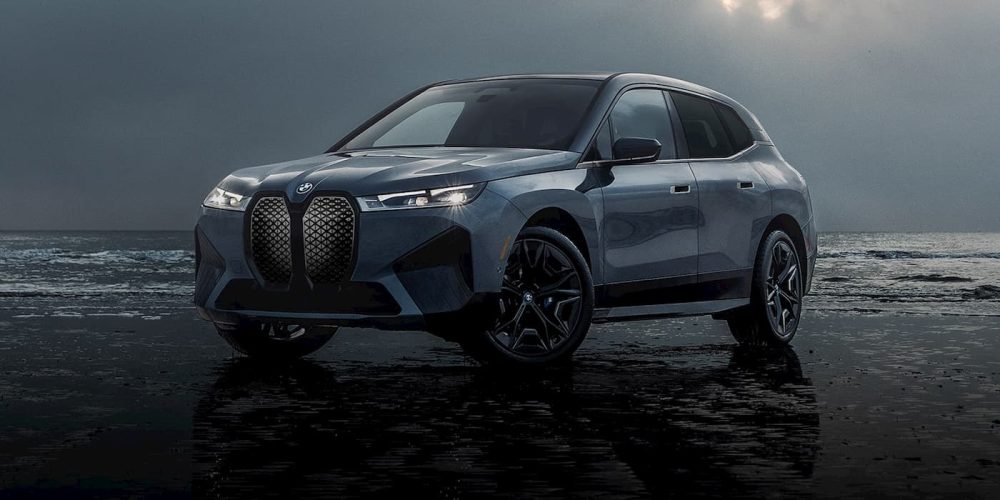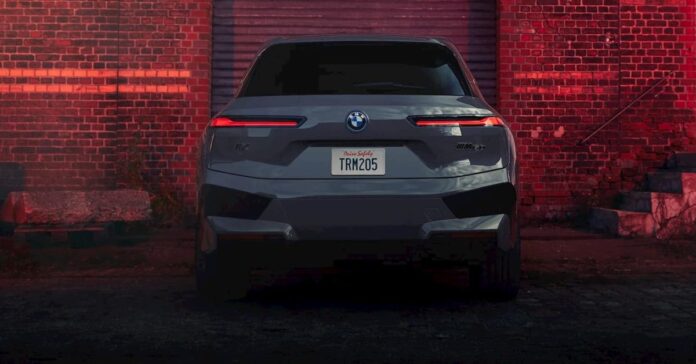In the latest announcement from an automaker to expand electric vehicle manufacturing in the US, BMW released Wednesday it will invest $1.7 billion in its US EV operations to boost output.
After setting a new US delivery record in the third quarter with 4,337 EVs delivered, BMW plans to accelerate the pace even further.
The US just hit 6% EV market share in the third quarter as it progresses towards its goal of 50% by 2030. With new federal incentives and a shifting consumer preference for EVs, demand is only expected to pick up from here.
Meanwhile, after retiring the company’s first “i-series” electric vehicle, the BMW i3, earlier this year, the German luxury automaker is setting its sights on higher market segments with EVs such as the BMW iX sport activity vehicle. Furthermore, the BMW i7 arriving at US dealerships later this year, is the company’s first full electric 7-series model – its largest yet.
Like several other automakers, BMW plans to take advantage of the swelling EV market by introducing fully electric models in all segments, launching at least six pure EV models by 2030.
BMW’s latest announcement to invest in US EV manufacturing comes after the Inflation Reduction Act, passed in August, provides incentives for building on US soil.

BMW invests $1.7 billion to boost EV manufacturing in the US
To increase production and meet the overwhelming demand for EVs in the US, BMW will invest $1.7 billion total in its US business.
As part of the investment, $1 billion will go toward expanding its South Carolina Plant Spartanburg facility, where 11 BMW models are currently produced. BMW’s CEO, Oliver Zipse, talks about how the facility will play a major role in its EV plans as we advance, stating:
For decades, Plant Spartanburg has been a cornerstone of the global success of the BMW Group. The home of the BMW X models that are so popular all over the world. Going forward, it will also be a major driver for our electrification strategy, and we will produce at least six fully electric BMW X models here by 2030. That means: The ‘Home of the X’ is also becoming the ‘Home of the Battery Electric Vehicle
Meanwhile, the other $700 million is designated for building a new high-voltage battery assembly facility in Woodruff, NC. The new battery plant will be over 1 million square feet, creating around 300 new jobs producing “next generation batteries” for future BMW EV models.
BMW says it aims to purchase battery cells where production takes place, partnering with Envision AESC to build a new battery cell factory with an annual capacity of 30 GWh.
The automaker claims its new battery cell design will increase energy density by over 20% while improving charging speed and range by up to 30%. Furthermore, with renewable energy and mineral recycling techniques, Carbon emissions will be reduced by up to 60%.
According to BMW, its US operations support over 120,000 US jobs while contributing $43.3 billion to the economy.
Electrek’s Take
Smart move by BMW, seeing as several luxury automakers, new and legacy, are targeting the US luxury market. In the third quarter, luxury vehicles controlled 17.8% of the market compared to just over 14% in Q3 2019.
More importantly, the new EV tax credit is driving massive investments in US manufacturing. BMW is the latest automaker to announce a significant investment to scale its manufacturing footprint in North America. Still, several others, including Hyundai, Volkswagen, Mercedes-Benz, and more, have already announced their intentions.
This year alone, companies have announced over $13 billion in EV manufacturing in the US. As new incentives roll out and EV production picks up, this looks to be a new trend.


